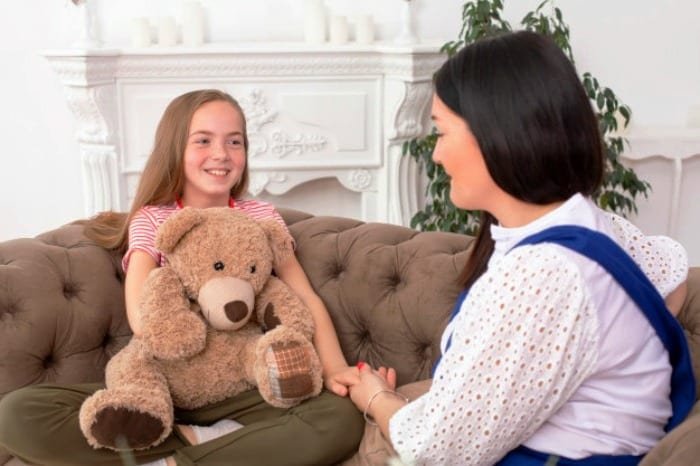10 harmful behaviors of parents that ruin their children’s lives
Child psychologists can distinguish between ungrateful children and those influenced by dysfunctional family behaviors. Research shows how parental actions can lead their children’s lives to devastation, and raising kids is not an easy task, thus parental methods shouldn’t be questioned.


In this section of child-rearing secretsfrom SelMagzWe want to address some toxic behaviors of certain parents that unknowingly destroy their children’s lives and have a detrimental impact on them.

10. Be afraid of me, but also love me
For some parents, emotional attacks equate to love, and in such families, children learn to read their parents’ moods from the sound of keys falling or footsteps, causing them to live in persistent fear, effectively making these parents offenders.
In fact, this family tells their child, “I have done everything for you, but you are truly ungrateful and don’t appreciate it.”

9. You must face your problems alone, but you have no rights
In toxic families, parents share responsibilities with their children to the extent that sometimes a child might believe their bad behavior caused their parent to turn to drugs, resulting in the child facing accusations.
In these situations, teenagers have to listen to their parents’ complaints, put themselves in their parents’ shoes, help, be patient, and advise them, unfortunately having no right to express their own opinions.
8. Be the best but remember, you are not special


Narcissistic parents want their children to always rank at the highest levels. While all of their children’s successes are gratifying for them, belittling their opinions and achievements destroys their self-worth, making them perpetually disappointed in their parents.
7. Be comfortable with me and tell me everything, but don’t make silly jokes
Toxic families force their children to be honest with them, and these children feel guilty for not sharing their feelings with their families, later their parents use that information against them.
Two ways this can happen:
- Relatives, neighbors, and acquaintances are aware of the child’s secrets, and the family harshly blames the child.
- Children who allow their families to criticize them with bitter and sarcastic remarks.

6. Better yourself but forget about future plans
Families that focus solely on their success ignore what actions are necessary for that success, such as expecting their child to find a good job without ever leaving the house.
These families are surprised by their child’s success for two reasons:
- It boosts their self-admiration and can provoke jealousy in others.
- Successful children are guarantees for a better future for their parents, providing support to them.
- Sometimes families remind their children that there is a vast gap between them and their goals for success.

5. You are bad and will never get better


The lower a child’s self-esteem, the easier they are to control. Toxic families broadcast their children’s failures everywhere and often give negative comments about their appearances, which is one of the worst possible actions, and even if there is nothing wrong, these families still find ways to criticize.
This family has a habit of humiliating their children and does not want to witness their successes; toxic families also do not want strong children who can show their power.
4. Follow my solutions, but if you fail, blame yourself
This family treats their children like tools, and as mentioned in SelMagz, they try to plan for them without considering the results, and if a mistake occurs, they refuse to take the blame.

3. Accept my help, have no complaints, and don’t take advantage
These parents give help so that children can manage everything without their parents’ help, but any disobedience leads to parents’ distress and discomfort.
The child thinks, “My parents just want to socialize and feel needed,” so they accept their help but also do nice things for them, but these parents constantly remind their children of those unsolicited favors, effectively making the kids prisoners in such families. If:
- If they refuse the parents’ help, it feels very rude not to accept help from mom and dad.
- If they accept it, children think they must always be open to such help and must also help in return and always be available.

2. Go, but don’t leave me alone


In healthy families, parents help their children have their independent lives, while toxic families never allow their children to be independent, always reminding them that everything they have—home, food, clothing, and anything else—comes from their family, dismissing any independence in the child.
1. Trust me and tell me everything
Private life? Personal space? None of these exist intoxic parentsmakes no sense.
If you try to create a personal boundary in these families, parents complain about not being trusted, and children must constantly answer their parents’ curious questions, such parents show no respect for their child’s personal life and decisions.

How can we manage such toxic families?
It is very hard for teenagers and children to want to get rid of these families, which is why specialists suggest ways to establish a better relationship with toxic parents than before.
First, we need to consider the following facts:
We cannot change the past.
A toxic relationship is like a chronic illness; it is almost impossible to cure, and one must avoid its difficulties and reduce them.
Suggestions exist that help us understand more that everyone has their personal life and should not be ashamed of their personal beliefs.

You have the right to:


- Live in your personal house with your own rules.
- Have no role in solving relatives’ problems.
- Limit others’ access to your personal boundaries.
- Utilize your personal experiences in life and ignore parents saying, “I know better.”
- Manage your possessions yourself: time, effort, and money.
- Have interests and hobbies without family involvement.
And finally, we must remember that:These rules apply to both sides. Children should not interfere too much in their parents’ lives or depend too heavily on their help.







